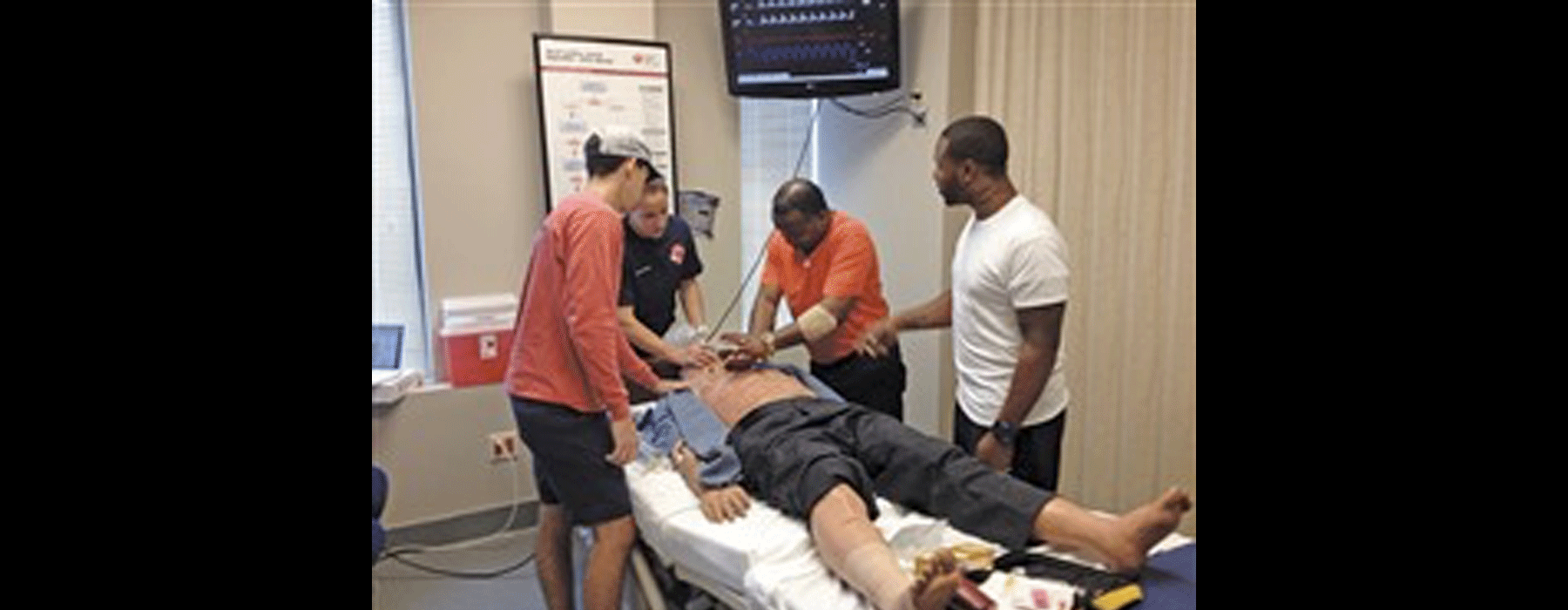MERI Hosts Emergency Training

05.26.17
The Daily News
MERI Hosts Emergency Training for First Responders
More than two dozen Shelby County first responders had a chance to learn advanced techniques this week, thanks to a partnership between the Medical Education and Research Institute and the Shelby County Fire Department.
MERI hosted four emergency management services training sessions Tuesday and Wednesday, May 23-24, as part of the county’s advanced emergency response education for its new ambulance service, which launched Jan. 1. As many as 32 SCFD staff members had the chance to participate in procedural labs utilizing cadavers as well as human patient simulators.
Funding was provided by an anonymous grant to MERI, and the training was provided free of charge to the fire department.
“The real key to this training is the realism aspect,” said Dr. Joe Holley, Emergency Medical Services medical director for Memphis and Shelby County. “Medics get an opportunity to not only work scenarios that are very realistic but also to practice the procedures that are involved in life-saving scenarios on the real thing so that they can come to appreciate the subtleties and variances that often occur in the real world.”
Standard medic and EMT education programs normally do not include cadaveric training. The hands-on sessions this week included anatomy, airway management and hemorrhage/wound management.
“Working with cadavers is very unusual for EMS. It’s not part of their regular educational process,” said Holley. “So this is a pretty unique experience for them. These are skills that are not necessarily used every day and skills that are very important to do quickly and to do well, so this is an opportunity to practice in an environment where you can slow down if you need to and spend some time looking at the details.”
He believes seeing the actual anatomy is invaluable for the responders, and many students have “light bulb moments” when they tie in their classroom training to what they see on the cadaver.
The training involved the removal of the chest plate, exposing the heart, lungs and major vessels and arteries.
“What we’re concentrating on is airway management – advanced airway skills – because we encounter that quite often where we have to intubate patients,” said Donald Fletcher, EMS division chief for the Shelby County Fire Department. “So this lets us see the results once you insert the intubation tube of what is actually happening in the chest cavity, as far as the expansion of the lungs and things of that nature. It also shows with traumatic injuries, like breaking some ribs, what other organs could be damaged and be the cause of excessive bleeding.”
Educators also conducted EMS scenarios, such as cardiac arrest, stroke assessment and asthma-related symptoms on adult and pediatric electronic simulators.
Fletcher said the adult simulators are used for cardiac arrest training, focusing on situations where medical responders recognize a person is having a heart attack on the scene.
“In today’s world, we can transfer that information to the emergency room, and they can set up the cath lab prior to us getting there,” he said. “Time is of the essence with things of that nature.”
The simulators can blink and breathe, their face can turn blue, they can have a seizure and students can even insert a trachestomy tube into the simulator – just about everything that they would do in a hospital setting, according to Darla Giles, MERI liaison for the willed body donor program.
Fletcher added that this is the most realistic training first responders can do.
“With cadaver training and the simulators, it gives us the best scenarios that you could encounter,” he said. “These simulators are almost alive in a sense.”
MERI is a nonprofit, medical teaching and training bioskills lab on Cleveland Avenue in the Memphis Medical District. For the past 22 years, the center has educated physicians, nurses, first responders and other health professionals from all 50 states plus 28 countries, and it contributes more than $44 million to the Memphis economy each year.
“MERI is a center of excellence for medical simulation, and they have been phenomenally supportive over the years with everything from this sort of very focused training to much larger training on disaster management and multiple-casualty incidents,” Holley said.
Last year, MERI educated more than 27,600 medical professionals and students in its facility in Memphis and in labs across the country and around the world.
By Michael Waddell
